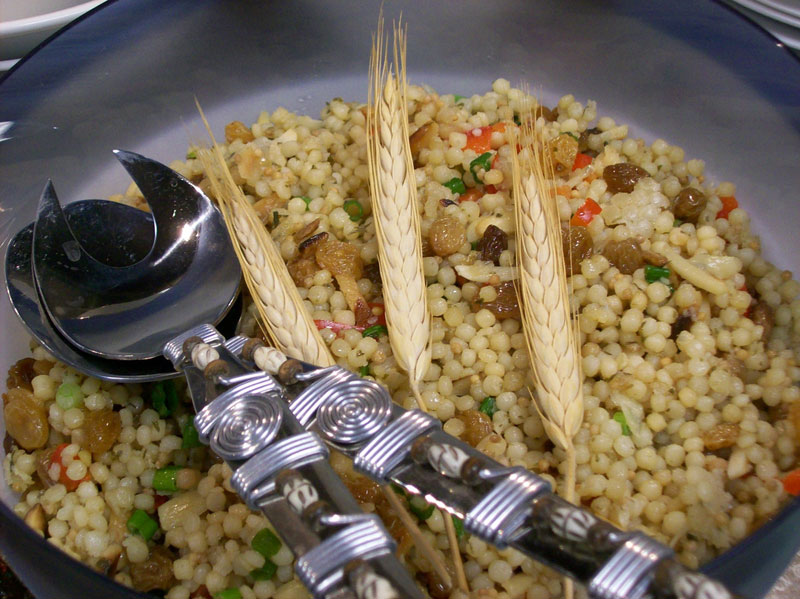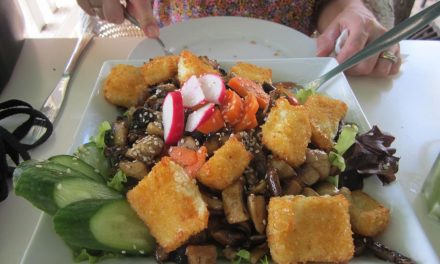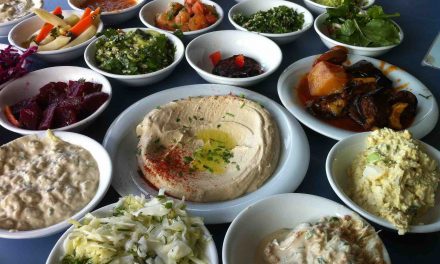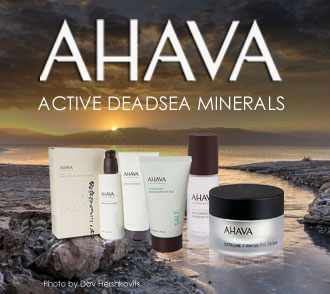Israeli couscous recipes and Israel Couscous the ‘Pearl of the Mediterranean and what is it exactly?
Well at first glance, couscous appears like mini round pearls. Israeli couscous is a bit larger and lighter in color than traditional couscous.
What is couscous anyway?
Well it is a whole wheat grain that originated in Northern Africa, but is now very commonly used as a staple food throughout Western Asia and Northern Africa. In the 1950’s the large Israeli food company Osem, introduced a more commercial packaged version of the couscous. Of course, like everything else, it is now readily available in the U.S. as well.
My Favorite Israeli Couscous Recipes
Couscous Salad
Ingredients
- Israeli (Pearl) Couscous – 1 cup
- Olive Oil – 2 tbls
- Chopped Onions – ½ cup
- Chopped Carrots – ½ cup
- Chopped Green or Red Pepper – ½ cup
- Diced Tomatoes – ½ cup
- Chopped Garlic – 1 tbls
- Chicken or Vegetable broth – 2 cups
- Chopped Fresh Basic – ¼ cup
- Parmesan or Feta cheese – ¼ cup
Directions:
Heat the olive oil in a small pan.
Gently cook the chopped onions, peppers, carrots and diced tomatoes in the pan for 2-3 minutes or until soft.
Add the Israel (Pearl) Couscous, stir well.
Add chopped garlic and cover with 2 cups of hot chicken broth, vegetable broth or water.
Season to taste. Cover and simmer for 8-10 minutes, stirring occasionally.
When finished, garnish with freshly chopped basil and cheese.
What I like most about Israeli food in general is how simple it is to make a dish that tastes so unique and so healthy, especially the amazingly tasty Israeli salads:
- A pasta toasted in an open flame oven which absorbs liquids similar to other grains like rice and pasta.
- Makes a perfect companion to meat, poultry, or fish but can be served as a main course mixed with vegetables or your favorite pasta sauce.
- Great as a cold pasta salad.
- Is Kosher Parve and contains gluten.
- Is really good for you.
Best of all it is FREE of Cholesterol, sodium, and saturated fats and is considered to be among the healthiest grain products.
Nutritional Facts comparing couscous to pasta:
- A lower glycemic load.
- Contains twice as much riboflavin, niacin,vitamin B6, and folate, and four times as much thiamine and pantothenic acid.
- Contains 3.6 grams of protein per 100 calories which is equivalent to pasta, and well above the 2.6 g for white rice.
- Contains a 1% fat-to-calorie ratio, compared to 3% for white rice, 5% for pasta, and 11.3% for rice pilaf.
More about Israel food from Israel Travel Secrets
Enjoy your cousous
Lisa













